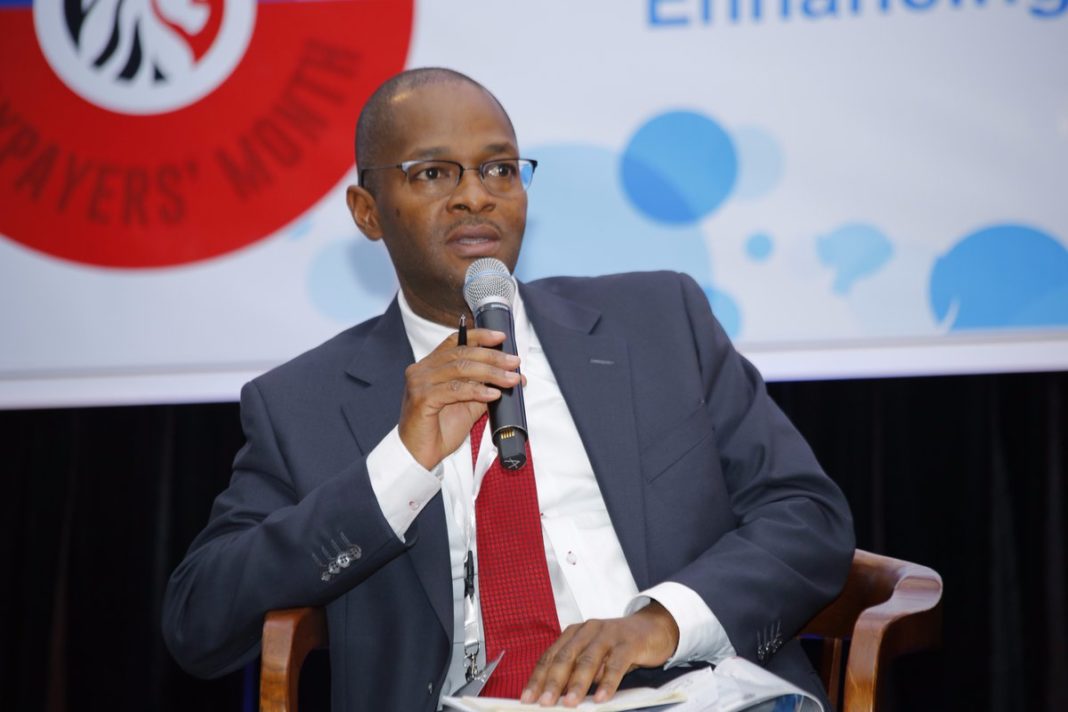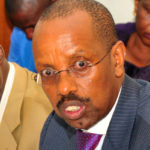Government must improve the capacity of tax collection agencies like the Uganda Revenue Authority (URA) if it wants to collect more tax revenue, a World Bank official has advised.
Let’s improve ICT, share information more and improve the capacity of revenue agencies like URA but also; when you collect taxes from citizens, then they expect better services, Moses Kajubi, Senior Public Sector Specialist at the World Bank Uganda Country Office said in Kampala Tuesday.
Kajubi was speaking during the launch of the 11th Uganda Economic Update at the Uganda Manufacturers Association (UMA) Conference Hall in Lugogo.
“The Economic update urges government to introduce new measures to collect more taxes sustainably in order to deliver better services to the people. And participants at the event were discussing how that could be achieved”.
He urged government to regularize Uganda’s big informal sector to reap more tax revenue. He said the informal sector players use cash to transact and this makes it hard to be taxed.
The World Bank is worried that Uganda collects only 14 per cent of GDP in tax which is 40 per cent less than its tax potential.
“How can the country avoid the debt trap and raise more revenue to finance its development? Rachel K Ssebudde, Senior Economist World Bank wondered.
Speaking at the event, the Permanent Secretary in the Ministry of Finance, Keith Muhakanizi, said the country needs to collect more tax revenue to fund its development projects.
Muhakanizi said all Ugandans; including political leaders must pay their fair share of taxes. “We leaders must be the ones to pay taxes first than the rest of Ugandans, we leaders must stop from exempting ourselves from paying taxes if we are to encourage others to pay their taxes,” he said, adding that some politicians are using the legal framework to evade paying taxes.
Muhakanizi said that government has proposed to tax copies of the holly books-Bible and Koran as a measure to increase the tax base much as he said there is resistance from some politicians. He said taxing the holy books is not a bad idea.
The Executive Director of Civil Society Budget Advocacy Group (CSBAG) Julius Mukunda said that to increase tax revenue base, Uganda needs to decrease the amount of tax exemptions, an argument which was also agreed to by World Bank’s Kajubi.
Mukunda said government should spend more money in service delivery to encourage citizens pay taxes. “Our willingness to pay taxes moves in line with how much government is spending on service delivery. If I know that my taxes are doing something that I benefit from, and then I would pay without question,” he said
On tax administration in the country, Kajubi said the issues of transparency and accountability were important in the administration of tax exemptions, saying some taxpayers have taken advantage of that provision to dodge paying taxes to government leading to the low tax revenue collections.
More, Kajubi has advised that government taxes big farmers in the Agriculture sector, which contributes 25 per cent of GDP and grew by 6.3 per cent in 2017, up from 1.9 per cent in the previous year. He also said government must also innovate and get more tax revenue in the services and industry sectors. Growth in services, was 47 per cent of GDP, doubled to 8.8 per cent in 2017 and industry which accounts for 20 per cent of GDP, registered 6.4 per cent in 2017.
The Chairman of African Fine Coffees Association, Ishak Lugenge, while addressing participants at the event said value addition to more products could reap more tax revenue for the government. “Value addition is a must if we are to go forward, we don’t have to do it at 100 per cent but at least if we did value addition to 40 per cent of our products, that would be a good level to start at,” he said.
According to Ms. Ssebudde, Uganda is growing at a slow rate of 4.5 per cent which makes it fall behind other countries, but also behind its aspiration of 6.7 per cent and that this growth figures needed to be improved to boost tax revenue collections in the near future.
The World Bank says Uganda’s medium term growth still hinges on strong investment. Adding that from the estimated growth of 5.5 per cent in financial year 2017/18, the economy could accelerate to percent in the subsequent two years, driven by investment in infrastructure such as the oil roads, oil pipeline.







